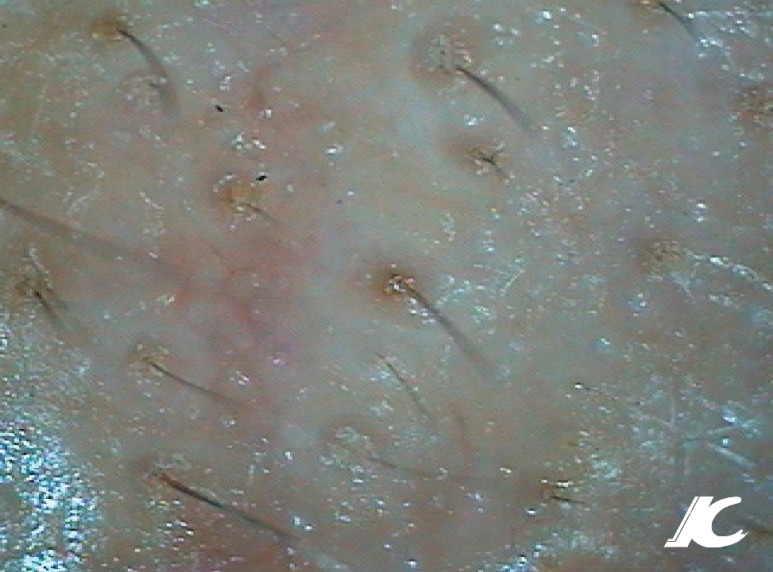
[Moderate to severe balding scalp]
Alopecia
A condition in which hair falls out and becomes thinning or scarce.
Hair loss can be treated differently depending on what causes it.
Today, we'll discuss the causes of hair loss and how to manage it.
Why is my hair falling out? Why is this happening? What can I do about it?
What causes hair loss?
There are two main types of hair loss.
There's male pattern baldness, which is caused by genetics, and resting hair loss, which is caused by nutritional deficiencies or environmental factors.
A person has between 50,000 and 70,000 hairs. Losing 50 to 80 hairs per day is generally considered to be in the normal range, and if you lose more than 100 hairs, you should suspect hair loss.
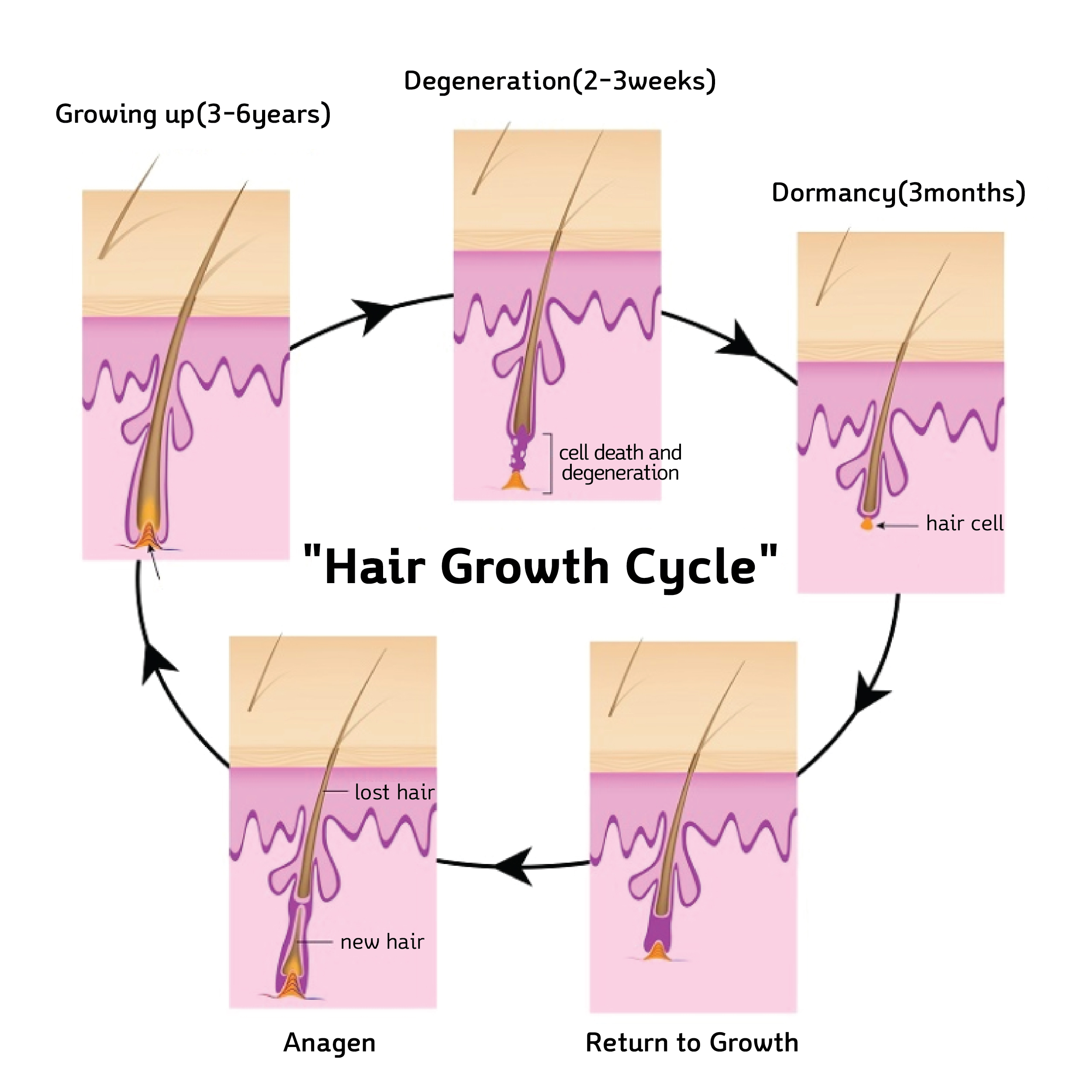
Hair grows for a period of time and then falls out, and anagen is a condition in which hair does not grow enough and rapidly progresses to anagen and shedding.
Humans have between 50,000 and 70,000 hairs. Losing 50 to 80 hairs a day is considered normal, and if you're losing more than 100 hairs, you should be concerned.
Causes of resting hair loss include pregnancy or childbirth, severe stress, fatigue, crash dieting, nutritional deficiencies, and hormonal imbalances. In most cases, hair regrows and recovers after five to six months without any special treatment. However, if you suspect that your hair loss is due to an endocrine disorder or ovarian abnormality, you should visit a doctor to get an accurate diagnosis.
A dermatologist may be able to help you with your hair loss symptoms, and if a medical condition is the cause, you may need to see an internal medicine or gynecologist.
You're a man and your hair is thinning on the front or crown of your head,
you may have androgenetic alopecia (also known as hereditary androgenetic alopecia).
This is the most common type of hair loss, also known as hereditary hair loss, and is primarily caused by dihydrotestosterone (DHT), which is a conversion of the male hormone androgen. DHT shortens the length of hair growth, atrophies hair follicles, and causes hair to become thinner and fall out more easily.
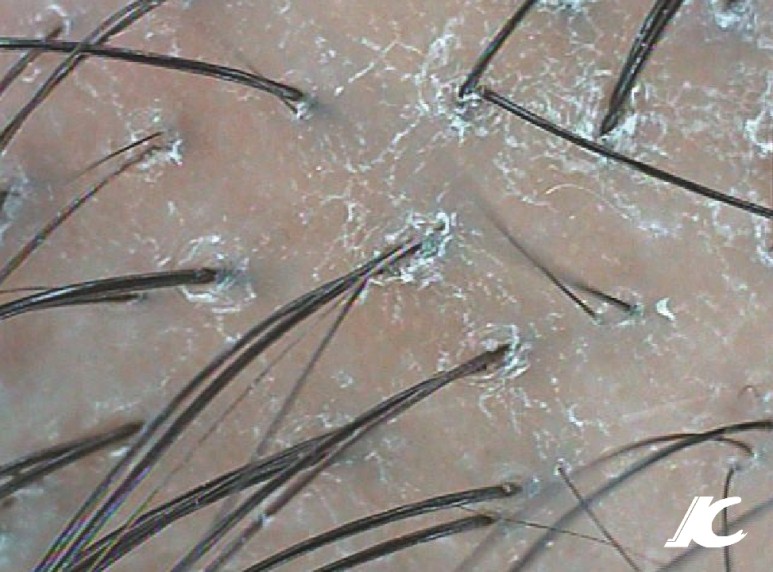
[Early Hair Loss Scalp]
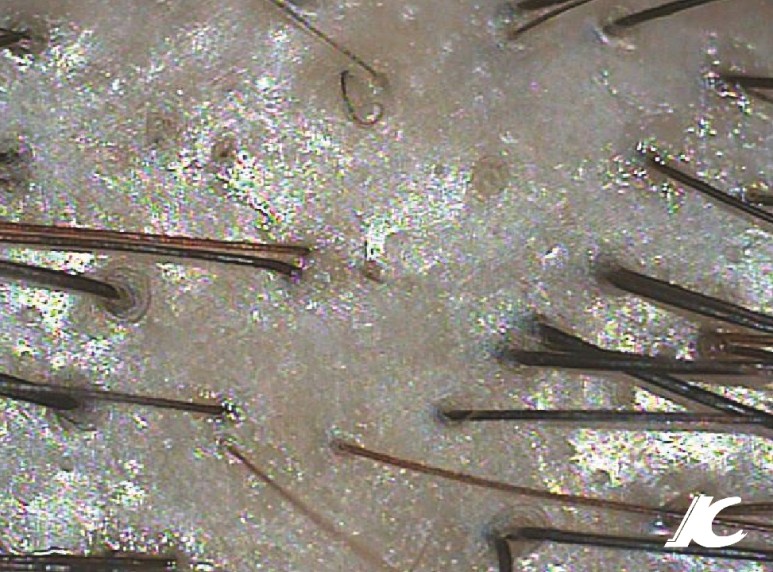
[Moderate Hair Loss Scalp]
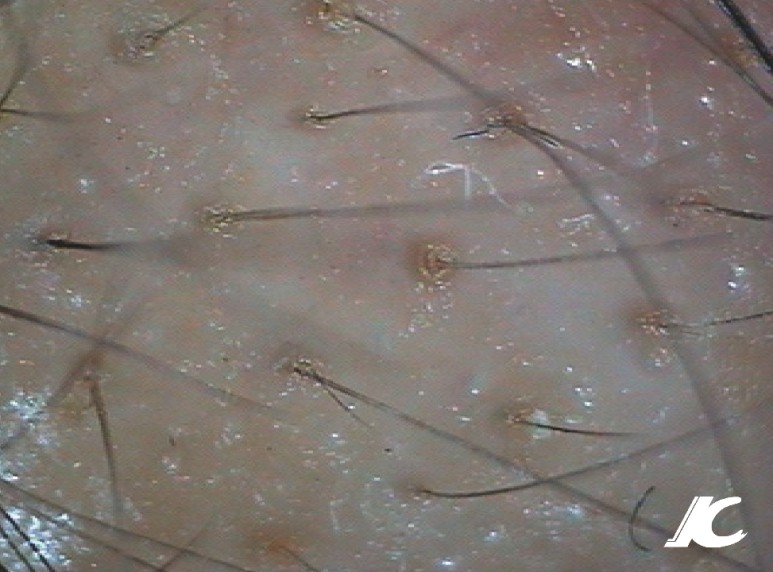
[Moderate to Severe Hair Loss Scalp]
The hallmark of androgenetic alopecia is that the hair on the front and crown of the scalp becomes progressively shorter, thinner, and lighter in color. Over time, fewer hairs can cause the forehead line to recede, or the scalp to become visible.
Androgenetic alopecia has a strong genetic component, with about 81.5% of people with the condition having a father who also has moderate or severe hair loss.
Androgenetic alopecia can be treated with a visit to a dermatologist, medication, or hair transplant surgery.
Alopecia areata is a relatively common condition that occurs in about 2% of the population. It usually results in coin-shaped hair loss. However, depending on the severity, you may experience hair loss from the hairline to the ears and along the back of the head, frontal baldness, which is a complete loss of hair on the head, or total body hair loss, which is the loss of all hair on the body, including eyebrows, eyelashes, and pubic hair.
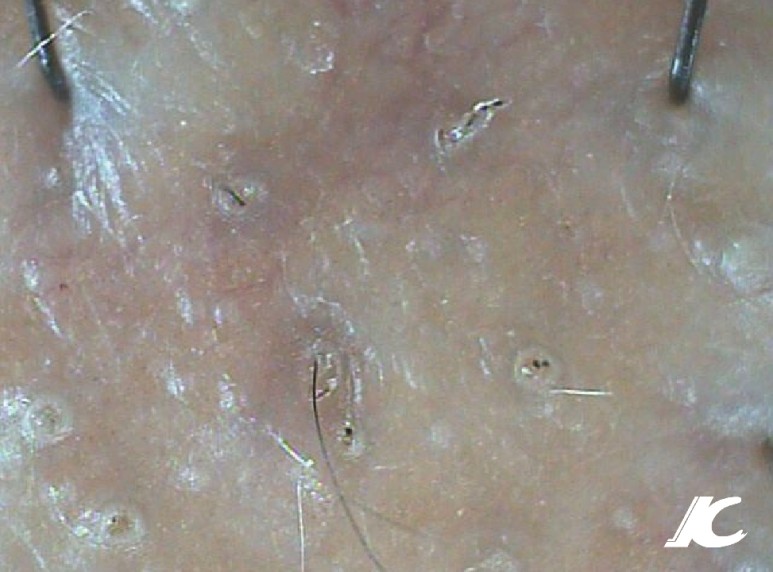
[Alopecia areata scalp]
The exact cause of alopecia areata is not yet known, but it is believed that an abnormality in the immune system causes certain hair follicles to be attacked, and family history, stress, viral infections, neurological disorders, poor nutrition, medications, and surgery are also known to play a role.
Alopecia areata can be treated by a dermatologist, and if it's stress-related, psychological counseling can help. Treatment with steroidal ointments or injections can usually cure the condition in about a month, but if it doesn't and it continues to spread, you may need to undergo other tests to find out more about the cause.
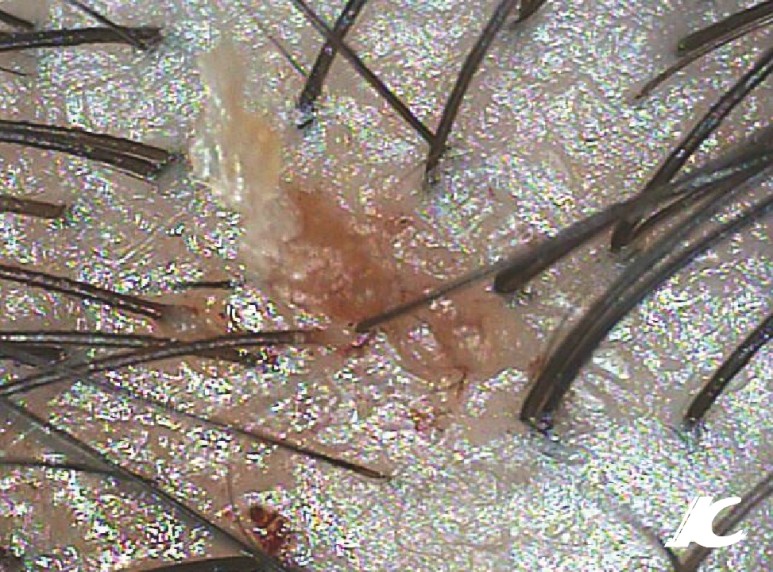
[Inflamed, oily scalp]
Skin conditions on the scalp, such as ringworm, psoriasis, folliculitis, and seborrheic dermatitis, can also cause hair loss, which is characterized by itching, dandruff, an excessively dry or oily scalp, flaky scalp, rashes, redness, and heat.
Skin conditions of the scalp are more common in men than in women. It's important to start treating it early on, as it can lead to complexes along with daily discomfort. Itchy scalp can be treated by visiting a dermatologist.
Other causes of hair loss include medication side effects, chemotherapy, burns, trauma, and head lice. It can also be caused by changes in thyroid hormones or autoimmune diseases such as lupus.
Hair loss is not a symptom that requires urgent attention, but if you experience rapid weight loss, excessive sweating, a fast pulse, or excessively irritable mood along with your hair loss, you may suspect that your hair loss is caused by an endocrine disorder such as hyperthyroidism. If this is the case, you should visit your doctor and get checked out. A clear distinction should be made between treatment and management.